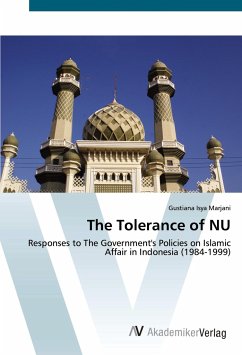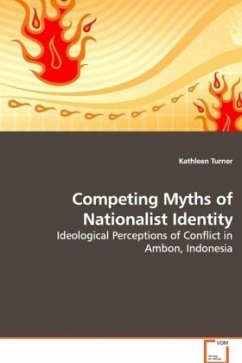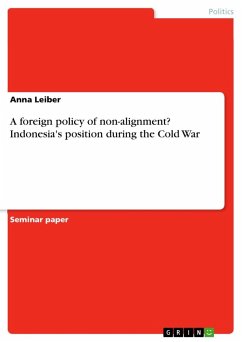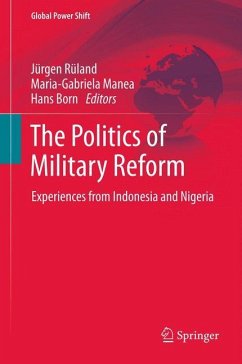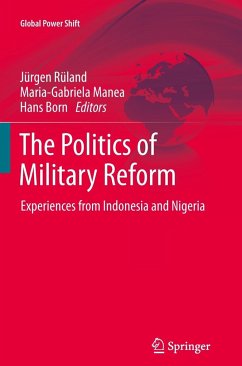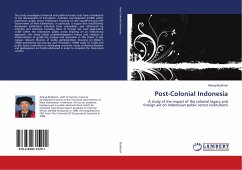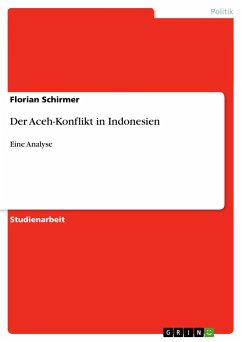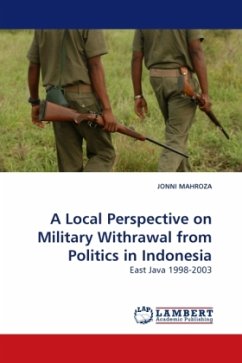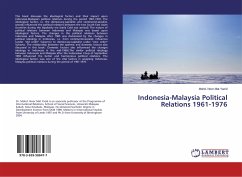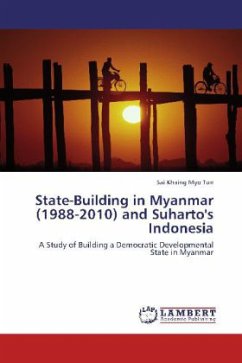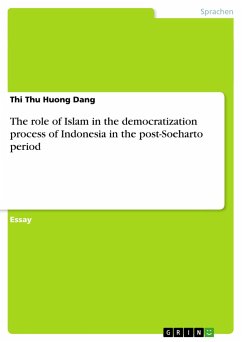
The role of Islam in the democratization process of Indonesia in the post-Soeharto period
Versandkostenfrei!
Versandfertig in 1-2 Wochen
17,95 €
inkl. MwSt.

PAYBACK Punkte
0 °P sammeln!
Essay aus dem Jahr 2005 im Fachbereich Orientalistik / Sinologie - Indonesisch, Note: 68, University of Leeds, Veranstaltung: International Studies, Sprache: Deutsch, Abstract: In his controversial and often-cited book "The clash of civilizations and the remaking of world order", Harvard's Samuel Huntington several times stated that Islamic culture and society, which is inhospitable to Western liberal principles, is in large part to blame for the failure of democracy in the Muslim world. In the end, the former upbeat spokesperson for democracy's "third wave" concluded: "Democratic prospects in...
Essay aus dem Jahr 2005 im Fachbereich Orientalistik / Sinologie - Indonesisch, Note: 68, University of Leeds, Veranstaltung: International Studies, Sprache: Deutsch, Abstract: In his controversial and often-cited book "The clash of civilizations and the remaking of world order", Harvard's Samuel Huntington several times stated that Islamic culture and society, which is inhospitable to Western liberal principles, is in large part to blame for the failure of democracy in the Muslim world. In the end, the former upbeat spokesperson for democracy's "third wave" concluded: "Democratic prospects in the Muslim republics are bleak." (1996: 29, 114, 193)The most populous Muslim republic of the world at a quick look seemed to be a telling proof of what Huntington said. Indonesia was ruled by the authoritarian regime of dictator Suharto in more than 30 years. After his fall, it was even more infamous for the human abuses in East Timor and Aceh, the Islamic opposition to a female president (1999), Bali bombings and the emergence of Islamic fundamentalism.However, in this essay, I argue that Indonesia is a vivid example of the compatibility of Islam and democracy. Contrary to being a conservative anti-democratic force, Islam in Indonesia has been "integral to democratization" (SAPC, 2004: 2) and become the single most important force for political change (Hefner, 2000: 18). My arguments will begin with a brief of the lack of democracy in the New Order (1967-1998) and the transition to democracy following it. Then I will provide another brief of an Indonesian Islam in different periods and its relationship with post-independence politics. Yet the core of my essay lies in the third section: the role of Islam in the transition to democracy in Indonesia, in which I will prove that Islam has played a critical part in the pro-democracy movement, in the research on the compatibility of Islam and democracy, in elections and in the building of a civil society in Indonesia... Finally, the conclusion sums up my points on the matter.



